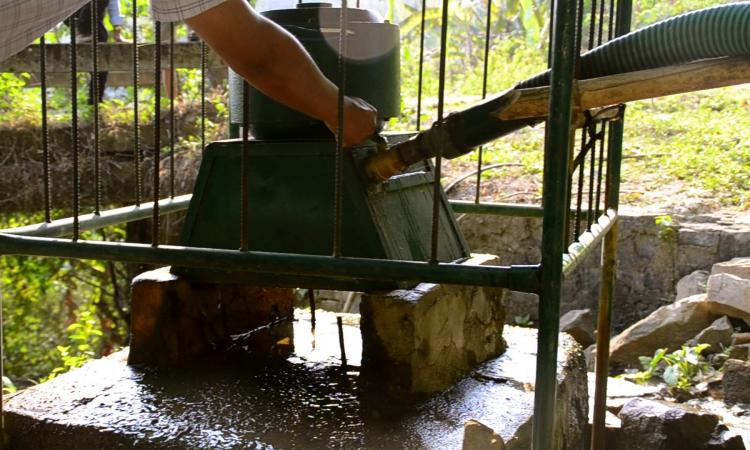
It is a labour of love. For 10 years, the team at Nagaland Empowerment of People through Economic Development (NEPeD) held this experiment close to their hearts- a daunting task that is lighting up lives in far-off villages in the mountains of Nagaland today. The hydroger has made way for many to diversify their income through new activities and reduced women’s day-to-day drudgery.
What is a hydroger?
It is a big dynamo-type generator of electricity that can produce power at an installed capacity of 3 and 5 Kilowatts from water running down a stream. It is an indigenous version of the Chinese hydroger which the NEPeD team got hold off in 1994. After a series of experiments with engineering and re-engineering, NEPeD and Dimapur-based Mini Tool Room (MTR) came up with their very own hydroger in 2008. The modified version in Nagaland has a durable magnet that wards off the need for an alternator. This also makes it handy, light and cost-effective.
Depending on the site and size , it takes about Rs. 1 to 2 lakh to install a hydroger machine and electric load controller. NEPeD has installed it in 25 sites in different villages of Nagaland and several other states.
After the hydroger is installed, the villagers are trained in its handling and care. The people also ensure that forests around the site and the catchment of the stream is maintained, a step that can go a long way in securing hope for sustainability of the project.
Watch the video to know more about the hydroger and how it has brightened lives.
/articles/sparkle-mountains-indigenous-hydroger